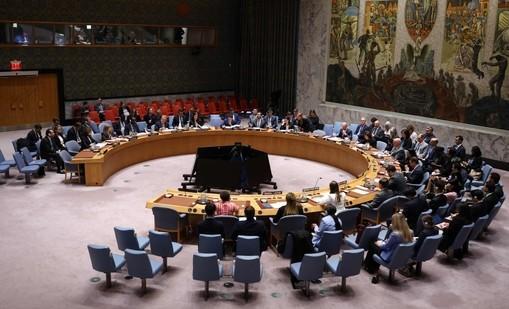
Was LeT involved? UNSC asks Pak on J&K attack, refuses to accept ‘false flag’ claim
The United Nations Security Council (UNSC) has refused to accept Pakistan’s claim that the recent attack on tourists in Pahalgam, Jammu and Kashmir, was a “false flag” operation. Instead, UNSC members questioned whether the terror outfit Lashkar-e-Taiba (LeT), which is based in Pakistan, was likely involved in the attack.
The UNSC took up the issue in a closed-door meeting requested by Pakistan, which had claimed that the attack was orchestrated by India to discredit Pakistan and tarnish its image globally. However, UNSC members were not convinced by Pakistan’s narrative and instead, they sought to know more about the involvement of LeT, a terror outfit known for its anti-India activities.
According to reports, some UNSC members brought up the issue of targeting tourists on the basis of religion, which has been a recurring theme in attacks in Jammu and Kashmir. The Pahalgam attack, which took place on October 1, left three tourists, including two women, injured. The attackers, who were reportedly armed with sharp-edged weapons, targeted the tourists at a popular tourist spot in the district.
Pakistan had claimed that the attack was a “false flag” operation, which is a term used to describe a covert operation that is designed to deceive or mislead by making it appear as if it was carried out by one side when it was actually carried out by another. However, UNSC members were skeptical of this claim and instead, they sought to know more about the involvement of LeT, which has been designated as a terrorist outfit by several countries, including the United States and India.
LeT, which was founded by Hafiz Saeed, a Pakistani militant, has been involved in several terrorist attacks in India, including the 2008 Mumbai attacks that killed over 160 people. The outfit has also been accused of carrying out attacks in Jammu and Kashmir, where it has been waging a separatist insurgency against the Indian government.
The UNSC meeting was seen as a significant development, as it highlights the growing concerns about terrorism in Jammu and Kashmir. The region has been witnessing an uptick in terrorist attacks in recent years, and the latest attack on tourists has raised concerns about the safety of visitors to the region.
Pakistan’s claim of a “false flag” operation has been disputed by several countries, including India, which has accused Pakistan of supporting terrorism in Jammu and Kashmir. The Indian government has also accused Pakistan of providing safe haven to terrorist outfits like LeT and Jaish-e-Mohammed (JeM), which has been involved in several terrorist attacks in India.
The UNSC meeting also comes at a time when India is trying to internationalize the Kashmir issue and bring it into the spotlight at the global level. The Indian government has been seeking to highlight the human rights violations in Jammu and Kashmir and the role of Pakistan in supporting terrorism in the region.
In a statement, the Indian government said that it was “deeply concerned” about the UNSC meeting and the attempts by Pakistan to “distort” the facts about the Pahalgam attack. The government also accused Pakistan of trying to “divert” international attention away from its own terrorist activities and human rights violations in Jammu and Kashmir.
The UNSC meeting is seen as a significant development, as it highlights the growing concerns about terrorism in Jammu and Kashmir and the need for international cooperation to combat it. The meeting also underscores the need for Pakistan to take concrete action to prevent the use of its territory for terrorist activities and to bring terrorists to justice.
In conclusion, the UNSC meeting has refused to accept Pakistan’s claim of a “false flag” operation and has instead, questioned whether LeT was involved in the Pahalgam attack. The meeting highlights the growing concerns about terrorism in Jammu and Kashmir and the need for international cooperation to combat it. The Indian government has accused Pakistan of supporting terrorism in the region and has sought to highlight the human rights violations in Jammu and Kashmir at the global level.



